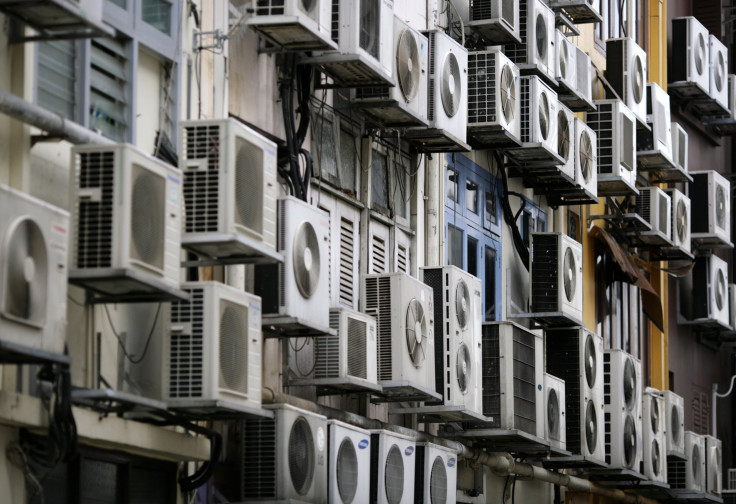How To Solve Pakistan’s Energy Crisis? Turn Off Air Conditioners, Wear No Socks

The new caretaker government of Pakistan has taken a novel approach to dealing with the country’s chronic electricity shortages and power outages: Officials have ordered all air conditioners in government offices turned off and instructed civil servants not to wear socks.
According to a report in Dawn, an English-language Pakistani newspaper, the ban on air conditioning – which went into effect on May 15 – will last until the energy crisis in the country has abated. The caretaker prime minister, retired Justice Mir Hazar Khan Khoso (who will hold the office until newly elected Prime Minister Nawaz Sharif forms a new cabinet) also imposed a highly detailed “summer dress code” for state workers. “The dress code includes white or light-colored (beige, light gray, sky blue, off-white, cream) shirt/bush shirt (full-sleeved or half-sleeved) with light-colored (as prescribed for shirt) trouser or shalwar kameez with waist coat, and moccasins (shoes without laces) or sandals (shoes with straps) without socks,” read a statement from Khoso’s office.
For the Pakistani public, Khoso has implored the use of energy conservation measures in homes, workplaces and private institutions. Blackouts are a common occurrence in Pakistan, particularly in the summer when temperature can rise to 100 degrees Fahrenheit or more. Power has at times been unavailable for up 20 hours a day in some places, Reuters reported. Extensive power outages have triggered violent demonstrations and threatened hundreds of thousands of manufacturing and other jobs in a nation already crippled by high unemployment.
The National Bureau of Asian Research reported that power cuts are estimated to have shaved 4 percent off Pakistan’s annual GDP over the past few years.
Indeed, the failure of the Pakistan Peoples’ Party (the party that ruled the country prior to the recent poll) to win re-election was partially attributed to its inability to provide consistent electrical services to the public.
But it doesn’t look like the latest measures will do much to solve Pakistan’s crippling energy woes – and two senior government officials even admitted as such. The Daily Times newspaper of Pakistan reported that the country’s ministers for water and power, Musadiq Malik and Sohail Wajahat Siddiqui, "expressed their inability to overcome the [energy] crisis" at a news conference in Lahore on Monday.
"[The ministers] have termed financial constraints as a major, and incompetence as a minor, hurdle in resolving the issue," the paper stated.
"Presenting the realistic picture, the ministers announced that they were going to increase the price of electricity and gas for all sectors."
Masood Hasan, a Pakistani columnist, also blasted the no-air-conditioner-and-no-socks plan.
Hasan satirically noted in The News International that the new directive may last at least a century given that the country’s energy crisis will not be solved anytime soon.
“This revolutionary order came into force last week and is not the first time such wishy-washy and wacky orders have been cooked up,” he wrote. “If this is the most miraculous ‘solution’ the [government] has, it’s time to call in the undertakers!... All such loony schemes die a natural death because even the most ignorant person knows they will not work.”
© Copyright IBTimes 2024. All rights reserved.





















